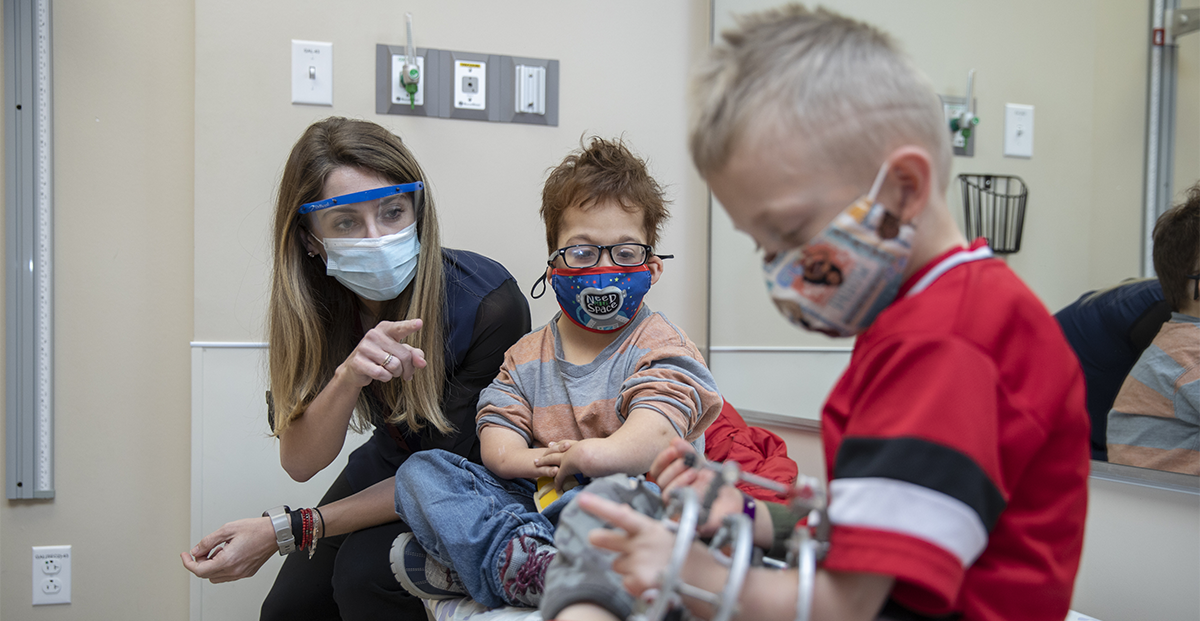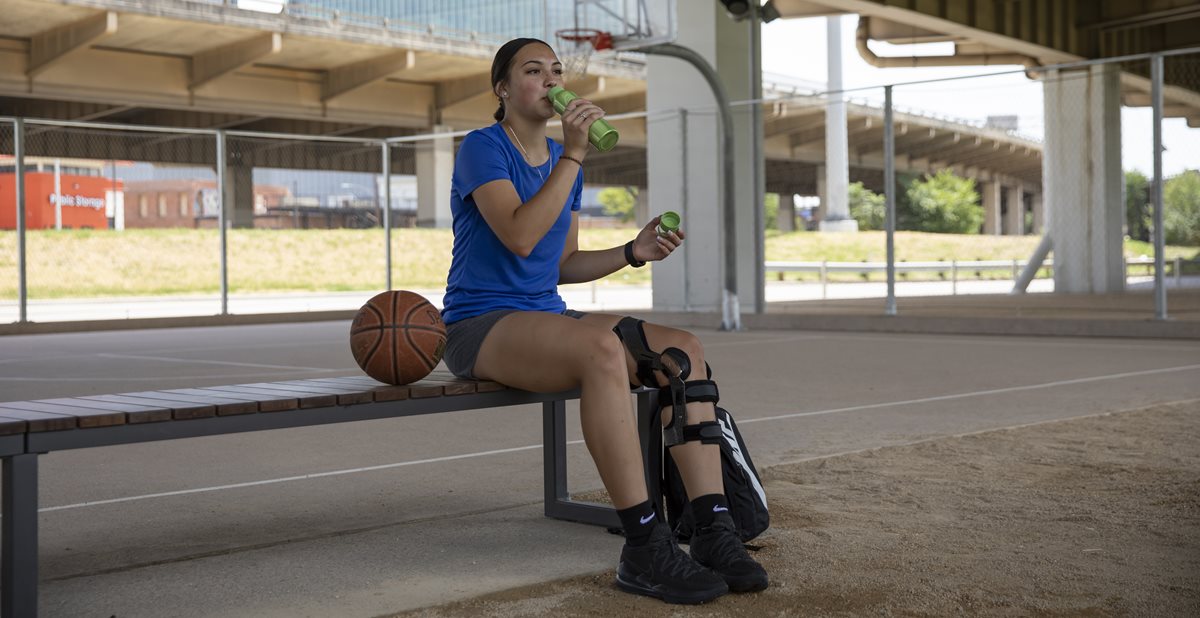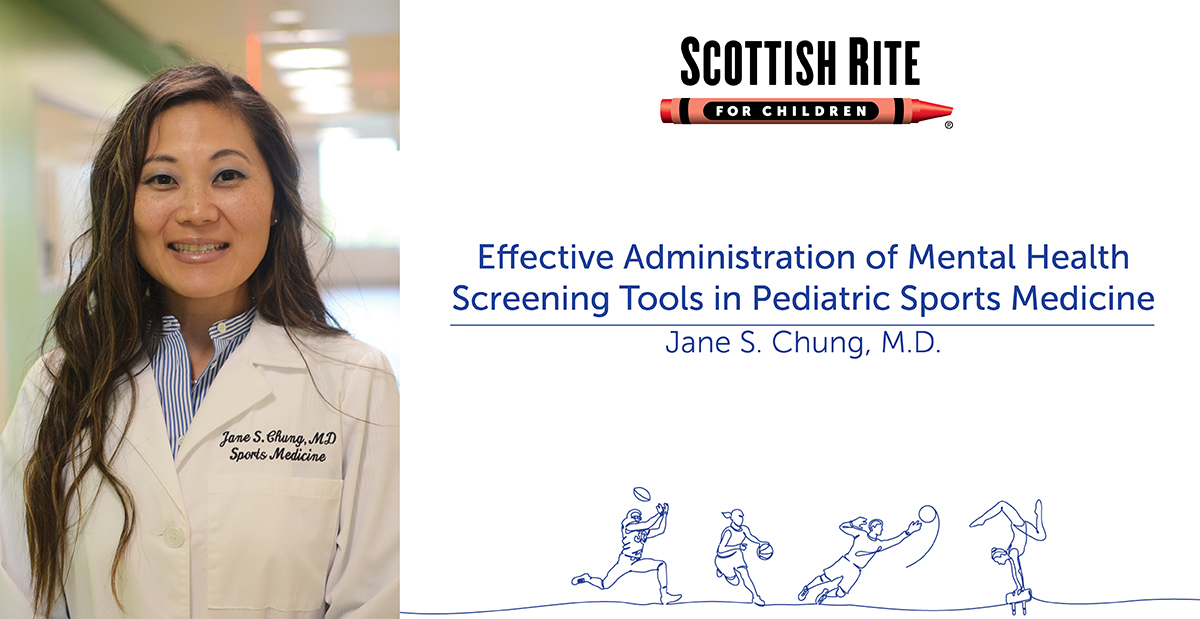
Jul 28, 2022 / Psychology
How to Cope with Your Child’s Diagnosis
Receiving a diagnosis for your child’s condition can be overwhelming. Whether their condition is temporary or ongoing, it can be difficult to cope with the news that your child needs treatment. Our Psychology team offers services to help navigate through life following a diagnosis. Pediatric psychologist Whitney Herge, Ph.D., shares techniques to manage after receiving a diagnosis.
Coping with a New Diagnosis
It can be a very emotional experience to receive a diagnosis of any type, particularly if the diagnosis is unexpected. Expect that your child may experience a wide range of emotions, from disinterest or denial to sadness, worry, anger and even relief.
- It is important for patients and their caregivers to know that both of their emotions may feel like a “rollercoaster” for the first few days, weeks or months, and that this is normal.
- Caregivers should communicate that their children’s emotions are always valid, and children should be encouraged to talk about their reactions and feelings regarding their diagnosis.
- Caregivers should also model close collaboration with medical providers and healthy emotion regulation skills to set an example for the child.
- Children will take their cues from their caregivers. If trusted adults model an accepting, positive, solution-oriented mindset, their children are likely to, as well.
- Maintenance of the child’s routines, as well as expectations (e.g., behavioral expectations, participation in chores, etc.), is also critical to preserving a sense of normalcy, organization and healthy boundaries.
Supporting Your Child After a Diagnosis
Talk with and listen to your child – both their verbal and nonverbal communication – to get a sense about how they are coping. Encourage your child to become knowledgeable about their diagnosis, so that they can explain it to friends and classmates.
- Help your child take ownership of their medical condition to promote their feelings of self-efficacy and self-advocacy.
- If new medical tasks need to begin (e.g., brace wear, medication, injections), explain why these activities are important and how they support your child’s health.
- Assist your child by incorporating these new medical tasks into their daily routine and provide multiple layers of support based on your child’s level of need.
- Children and families should be reminded often that a diagnosis does not change a person – they are still the same loving, joyful, playful child they were prior to receiving the diagnosis.
Discussing a Diagnosis with Your Child
Honesty is the most important factor when talking with a child about their diagnosis. Some caregivers are concerned that speaking to their children openly may cause anxiety, and while this is true in the short term, children need the opportunity to feel as knowledgeable and in control of their bodies as possible.
- Caregivers should therefore talk with children openly and honestly, on the child’s developmental level, and conversations should be ongoing over time.
- As children age and face new expectations and experiences (e.g., at school, with peers), their understanding of their diagnosis should evolve at the same time.
Psychology Services at Scottish Rite for Children
Our Psychology department includes formally trained and licensed pediatric psychologists who are focused on promoting the health and well-being of children and adolescents with chronic illness and/or complex medical conditions. The staff applies their training as clinical health psychologists to the physical, social and emotional needs of pediatric patients. Direct clinical inpatient and outpatient services are provided to Scottish Rite patients, along with their families and caregivers. The team is primarily involved in clinical care, but also contributes to research and provides training to future pediatric psychologists, medical trainees and allied health professionals.
Learn more about our Psychology department.



